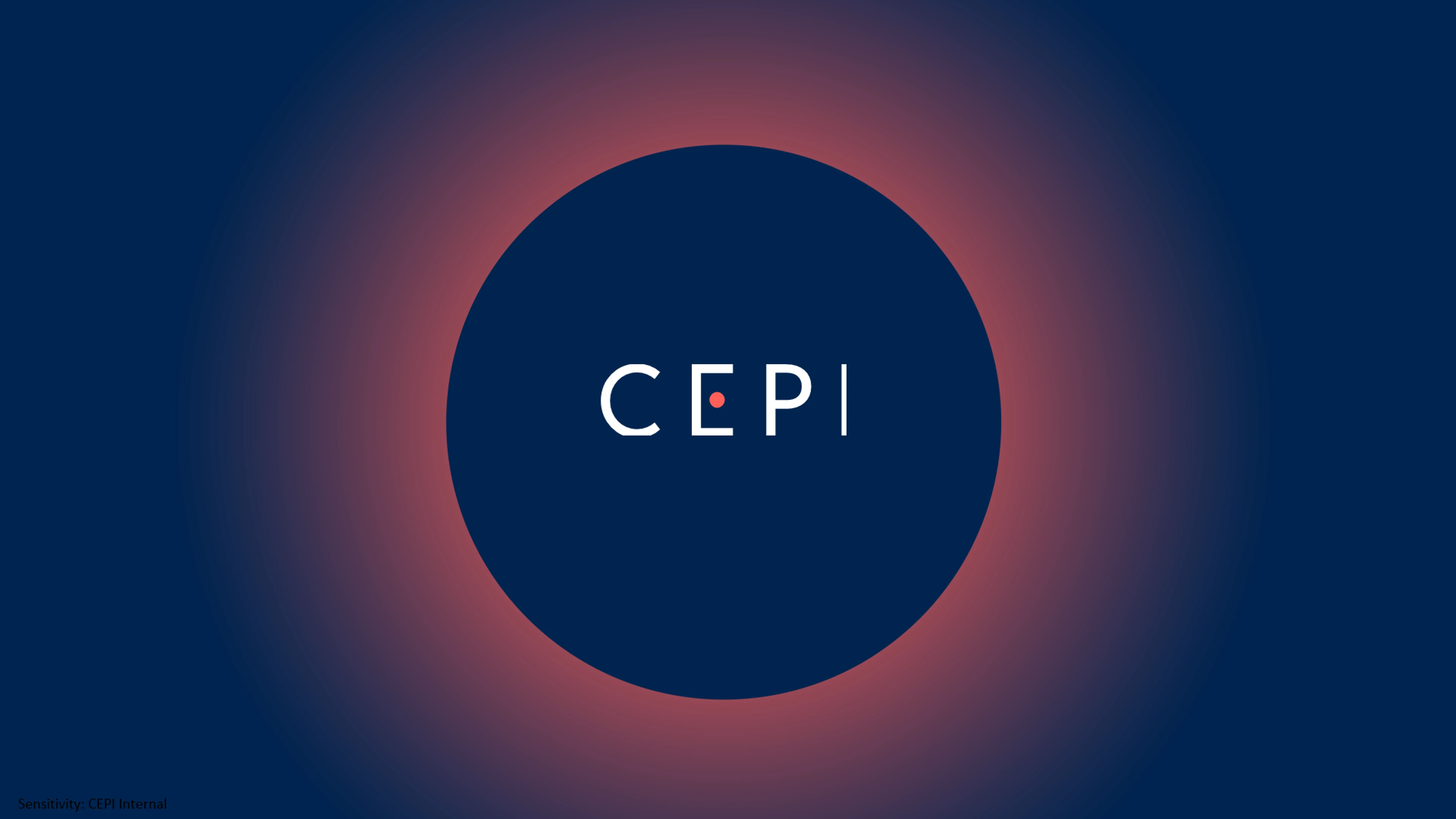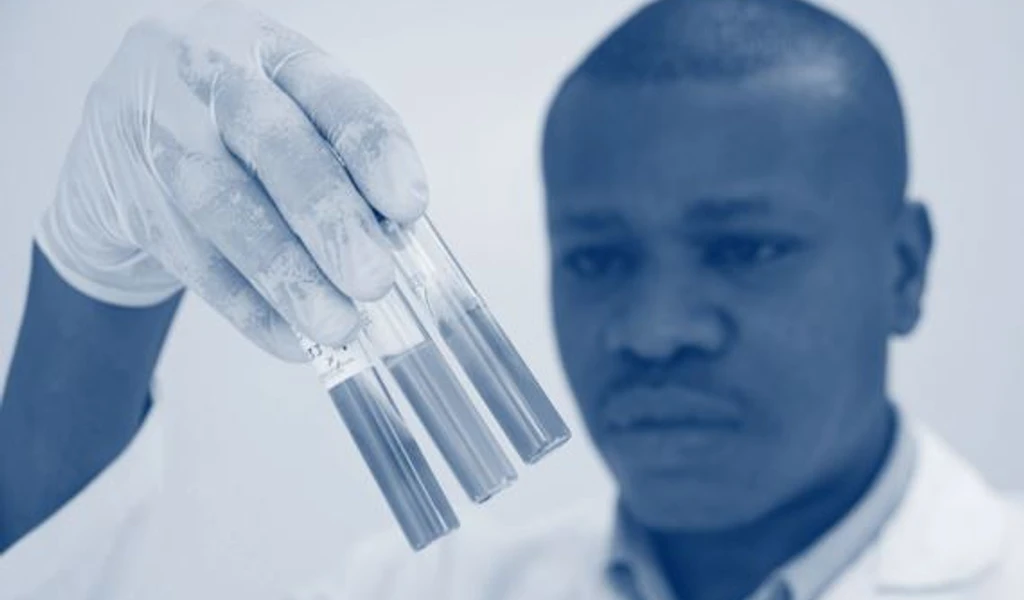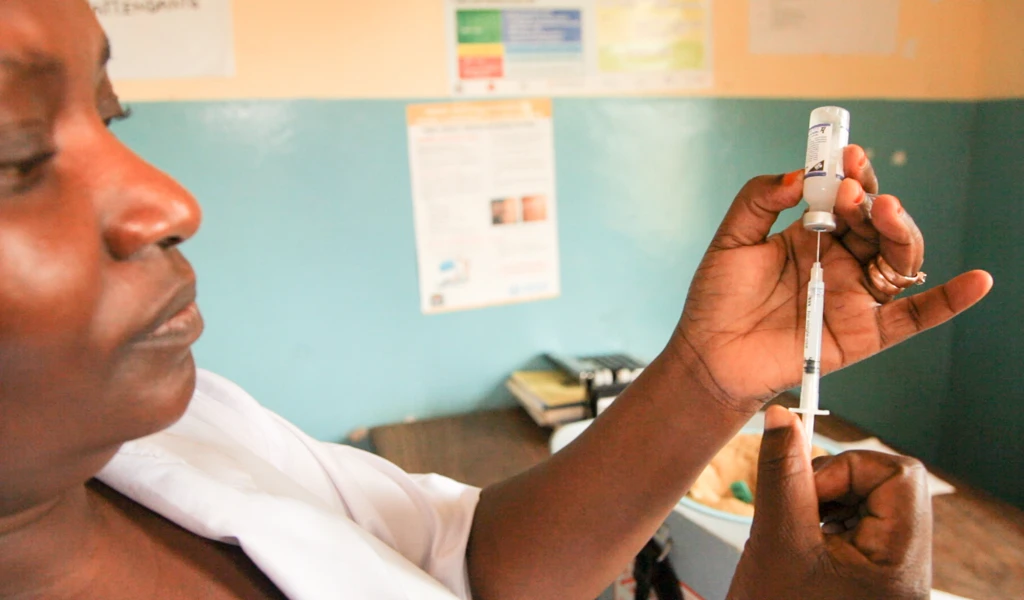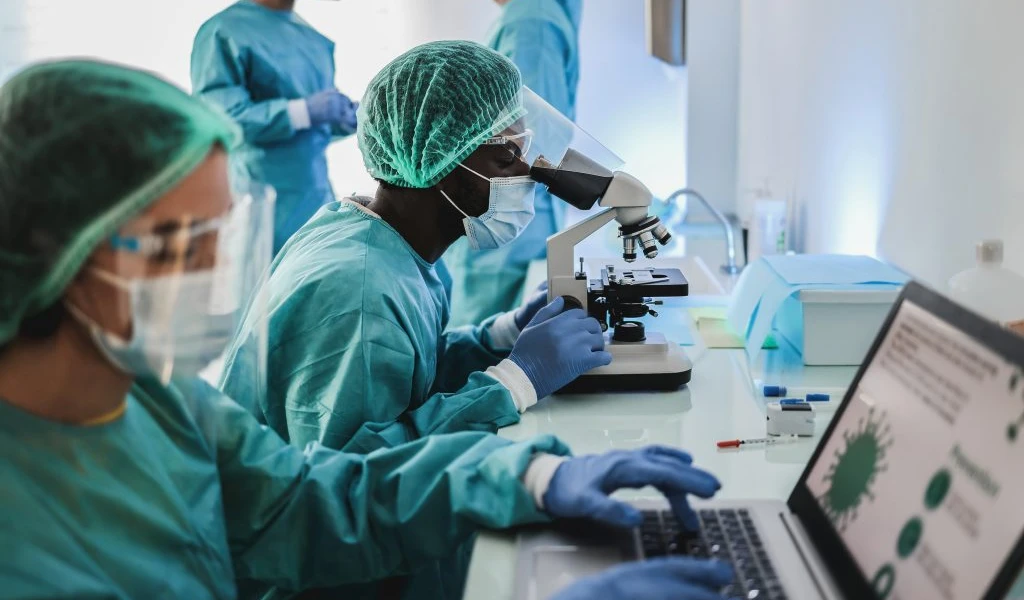Vaccine specialists and global health experts selected for CEPI's Scientific Advisory Committee

The group will provide key guidance and recommendations on CEPI's vaccine R&D programmes and broader outbreak response efforts, both in tackling COVID-19 and in planning for future epidemics and pandemics.
June 9, 2021, Oslo, Norway — The Coalition for Epidemic Preparedness Innovations, or CEPI, today announces the new and returning members selected to join its Scientific Advisory Committee for the next three-year period.
Comprising of thirty-four expert individuals from a broad range of key disciplines—including epidemiology, vaccine development, vaccine manufacturing, public health and regulatory sciences—the group will work as an independent body to provide world-class scientific input and recommendations to guide CEPI staff and the CEPI Board in responding to the current COVID-19 pandemic. They will also deliver guidance and challenge towards CEPI's US$3.5bn plan, announced in March 2021, to mitigate or even dramatically reduce the threat of future pandemics and epidemics.
The 2021-2024 CEPI Scientific Advisory Committee includes new members, as well as existing members who have served on the committee since its launch in 2018 and will run an additional two-year term. Additional members may join in the coming months.
Helen Rees, Executive Director of the Wits Reproductive Health and HIV Institute of the University of Witwatersrand (South Africa), will return as Chair of the Scientific Advisory Committee for a one-year term. Michael King, an independent vaccine manufacturing consultant, has been newly selected as Vice-Chair.
The new members will start in their roles this month, June 2021.
On behalf of CEPI and the CEPI Board, I am delighted to welcome our new and returning members to the Scientific Advisory Committee. The expert group has already served as a pivotal force in propelling our scientific understanding and insight forward for our priority diseases like Lassa fever, Ebola, and, today, COVID-19.
We look forward to working with our new colleagues who, through their scientific flair and creativity, will be instrumental in guiding us and the world forward in our response to epidemic and pandemic disease. In selecting our new members, we have created a global forum of voices with diverse scientific and cultural input to build on the lessons of the COVID-19 pandemic and catalyse progress tackling the global health challenges that lie ahead of us.
I wish to thank the inaugural members of the Scientific Advisory Committee for their innovation and collaboration in supporting CEPI's work over the past three years.
Members of the Scientific Advisory Committee were selected following a call launched by CEPI in January 2021. Following the call's closure, CEPI conducted an exhaustive review process of candidates based on expertise, experience, and geographical representation across March and April 2021. All candidates were approved by the Executive and Investment Committee of the CEPI Board.
Three years ago, the CEPI vision of "New vaccines for a safer world” was on track to develop vaccines for neglected pathogens recognised for the devastation caused to some communities but which were of little interest to commercial developers.
Overnight, in response to the COVID-19 pandemic, CEPI took the lessons learnt in vaccine innovation, platforms and manufacturing and successfully applied them to the deadliest and most disruptive pathogen that the world has seen for a century. This is an organisation that has proved to be fit for purpose for both its initial vision and to respond to a pandemic.
It is an honor to serve on the CEPI Scientific Advisory Committee with such a distinguished, diverse, and dedicated group of scientists/ leaders focused on improving global human health.
The world is fortunate to have CEPI, and the Scientific Advisory Committee serves to increase the impact and effectiveness of CEPI. While CEPI has contributed much to the recent COVID-19 pandemic, we can learn from our recent experience and improve our organizational capability for the next challenge.
CEPI's new five-year strategy, running from 2022-2026, sets out ambitious initiatives to build a future world that is better equipped to deal with future epidemic and pandemic threats. Set under the priority areas of prepare, transform, and connect, the plan includes working towards a "moonshot" objective which seeks to reduce vaccine development timelines by two thirds to 100 days. As part of the strategy, CEPI is also looking to advance the development of broadly protective Betacoronavirus vaccines, to protect against SARS-CoV-2 variants, other betacoronaviruses, and potentially novel coronaviruses that have yet to emerge.
The Scientific Advisory Committee will play a core role in advising CEPI on the design and implementation of these programmes, while also providing guidance on CEPI's current portfolio of vaccine candidates and supporting programmes as well as the creation of additional Calls for Proposals to further CEPI's objectives.
The group are scheduled to meet on a quarterly basis. Members may also be asked to serve on subcommittees, champion CEPI's mission among scientific peers and in the public sphere, and, as with the COVID-19 pandemic, take part in bespoke meetings to share knowledge and provide guidance in response to current outbreaks.
CEPI 2021-2024 Scientific Advisory Committee Members
Alash'le Abimiku*
Professor and Executive Director, International Research Center of Excellence, Institute of Human Virology, Nigeria
Nationality: Nigeria
Area of Expertise: Virology, Immunology
Alan Barrett*
Director, Sealy Institute for Vaccine Sciences, University of Texas Medical Branch, USA
Nationality: UK
Area of Expertise: Virology, animal models, preclinical, antibodies, vaccine safety
Paula Bryant*
Director, Office of Biodefense, Translational Research, and Research Resources, Division of Microbiology and Infectious Diseases, National Institute of Allergy and Infectious Diseases, National Institutes of Health, USA
Nationality: USA
Area of Expertise: Vaccine development, immunology, microbiology, preclinical testing, IND-enabling studies, preclinical model development, preclinical rule, emerging infectious diseases, biodefense
Inger Damon*
Director, Division of High Consequence Pathogens and Pathology, Centers for Disease Control and Prevention, USA
Nationality: USA
Area of Expertise: Virology, public health
Michel De Wilde*
Owner, MDW Consultant, LLC
Nationality: Belgium/ USA
Area of Expertise: Vaccine development with emphasis on research and Chemistry, Manufacturing, and Controls (CMC)
Philip Krause*
Deputy Director, Office of Vaccines Research and Review, Center for Biologics Evaluation and Research, US Food and Drug Administration, USA
Nationality: USA
Area of Expertise: Virology, clinical trials
Stanley Plotkin*
Emeritus Professor, University of Pennsylvania, USA
Nationality: USA
Area of Expertise: Virology, immune responses, vaccination strategy
Helen Rees (SAC Chair)*
Executive Director, Wits RHI, University of the Witwatersrand, South Africa
Nationality: South Africa
Area of Expertise: Clinical Development and regulatory science and African regional priorities
Peter Smith*
Professor of Tropical Epidemiology, London School of Hygiene and Tropical Medicine, UK
Nationality: UK
Area of Expertise: Epidemiology, clinical trials, post-deployment effectiveness studies
Sani Aliyu
National Coordinator, Nigeria Presidential Task Force on COVID-19, Federal Government of Nigeria
Nationality: Nigeria
Area of Expertise: Virology, public health epidemiology
Vineeta Bal
Scientist, Indian Institute of Science Education and Research, Pune, India
Nationality: India
Area of Expertise: Infectious disease immunology
Christian Drosten
Director, Institute of Virology, Charité - Universitätsmedizin Berlin, Germany
Nationality: Germany
Area of Expertise: Virology
Peter Dull
Deputy Director, Integrated Clinical Vaccine Development, Vaccine Development & Surveillance, Bill & Melinda Gates Foundation
Nationality: USA
Area of Expertise: Clinical Development
George Gao
Director-General, Chinese Center for Disease Control and Prevention
Nationality: China
Area of Expertise: Pathogen biology, immunology
Azra Ghani
Professor in Infectious Disease Epidemiology, Imperial College London, UK
Nationality: UK
Area of Expertise: Epidemiology
Josie Golding
Epidemics Research Lead, Wellcome
Nationality: Ireland
Area of Expertise: Virology
Rebecca Grais
Director of Research, Epicentre
Nationality: France
Area of Expertise: Epidemiology, clinical trials, epidemics
Ken J. Ishii
Professor and Director of the International Research and Development Center for Mucosal Vaccines, The Institute of Medical Science, The University of Tokyo
Nationality: Japan
Area of Expertise: Policymaking, regulatory science, vaccine hesitancy, human clinical trials, CMC, systems vaccinology
Kent Kester
Vice President and Head, Translational Science & Biomarkers, Sanofi Pasteur
Nationality: USA
Area of Expertise: Translational vaccine development, pandemic response, antimicrobial resistance, clinical trials, and clinical infectious diseases
Michael King (SAC Vice-Chair)
Independent Consultant
Nationality: USA
Area of Expertise: Manufacturing
Marc Lipsitch
Professor of Epidemiology, Harvard T.H. Chan School of Public Health, USA
Nationality: USA
Area of Expertise: Epidemiology, vaccine trial design
Dominique Maugeais
Independent Consultant
Nationality: France
Area of Expertise: Manufacturing
V. Krishna Mohan
Executive Director, Bharat Biotech, India
Nationality: India
Area of Expertise: Research and development, manufacturing, clinical trials
Vasee Moorthy
Senior Advisor for Research and Development, World Health Organization
Nationality: UK
Area of Expertise: Science/policy interface, vaccine clinical trials, vaccine immunology, data sharing
Gary Nabel
President and CEO, Modex Therapeutics
Nationality: USA
Area of Expertise: Virology, immunology, and translational medicine
Laura Palomares
Principal Researcher and Professor, Instituto de Biotecnología, Universidad Nacional Autónoma de México (UNAM)
Nationality: Mexico
Area of Expertise: Chemistry, Manufacturing and Control (CMC), characterisation of vaccines and vaccine candidates
Peter Paradiso
Principal Consultant, Paradiso Biologics Consulting LLC
Nationality: USA
Area of Expertise: Pre-clinical, clinical development, regulatory strategy
Frances Priddy
Clinical Director Vaccine Alliance Aotearoa New Zealand, Malaghan Institute of Medical Research
Nationality: USA
Area of Expertise: Clinical development for vaccines and monoclonal antibodies
Mahmudur Rahman
Infectious Disease Epidemiologist, Independent Consultant
Nationality: Bangladesh
Area of Expertise: Infectious disease epidemiology, public health preparedness and response
Rino Rappuoli
Head R&D and Chief Scientist, GSK Vaccines
Nationality: Italy
Area of Expertise: Vaccines, infectious diseases, human monoclonals
Marco Safadi
Professor of Pediatrics and Head, Department of Pediatrics, Santa Casa de Sao Paulo School of Medical Sciences, Brazil
Nationality: Brazil
Area of Expertise: Clinical development of vaccines, real-world impact evaluation of vaccination programmes, epidemiology of community-acquired infections
Stephen Thomas
Director, Institute for Global Health and Translational Sciences, SUNY Upstate Medical University, USA
Nationality: USA
Area of Expertise: Clinical infectious diseases, virology, vaccine development
Linfa Wang
Professor, Duke-NUS Medical School, Singapore
Nationality: Australia
Area of Expertise: Virology, serology, novel assay platforms, vaccine candidate screening/selection
Michael Watson
CEO, MEVOX & VaxEquity Ltd.
Nationality: UK
Area of Expertise: Vaccine research and development, multiple platforms
*Members listed with an asterisk next to their name are re-joining the CEPI Scientific Advisory Committee for a second term.
UPDATE: 8 July 2021
Luciana Borio, Senior Fellow for Global Health, Council on Foreign Relations, has now joined CEPI's Scientific Advisory Committee. This brings the total number of group members to thirty-five.
Notes to the Editor
Additional details on CEPI's Scientific Advisory Committee
The Scientific Advisory Committee is an independent advisory body that provides scientific support, advice, and guidance to CEPI staff and the CEPI Board. Final decision-making about the issues addressed by the committee rests with CEPI staff or the CEPI Board.
The inaugural 2018-2021 CEPI Scientific Advisory Committee previously listed members as ‘Voting Members' or ‘Non-Voting Members'. As the Scientific Advisory Committee is solely an advisory body with no voting rights, this distinction has been removed for the 2021-2024 group.
Members' conflicts of interest will be monitored and addressed very closely. Potential conflicts of interest will be managed in accordance with CEPI's Conflict of Interest policy. Any member with a conflict of interest related to a specific issue shall be excluded from discussion on the issue and shall not receive any documents relating to the issue giving rise to the conflict.
For further information on CEPI's Scientific Advisory Committee operation and structure, please see our Terms of Reference.
Further details on the Scientific Advisory Committee and its new members can be found on the Who We Are page on the CEPI website. An overview of the application and selection process for members to join the Scientific Advisory Committee can be found here.
About CEPI
CEPI is an innovative partnership between public, private, philanthropic, and civil organisations, launched at Davos in 2017, to develop vaccines against future epidemics. Prior to COVID-19 CEPI's work focused on developing vaccines against Ebola virus, Lassa virus, Middle East Respiratory Syndrome coronavirus, Nipah virus, Rift Valley Fever virus and Chikungunya virus - it has over 20 vaccine candidates against these pathogens in development. CEPI has also invested in new platform technologies for rapid vaccine development against unknown pathogens (Disease X).
During the current pandemic, CEPI initiated multiple programmes to develop vaccines against SARS-CoV-2 and its variants with a focus on speed, scale and access. These programmes leverage the rapid response platforms previously developed by CEPI's partners prior to the emergence of COVID-19 as well as new collaborations. The aim is to advance clinical development of a diverse portfolio of safe and effective COVID-19 candidates and to enable fair allocation to these vaccines worldwide through COVAX.
CEPI's 5-year plan lays out a $3.5 billion roadmap to compress vaccine development timelines to 100 days, develop a universal vaccine against COVID-19 and other Betacoronaviruses, and create a "library" of vaccine candidates for use against known and unknown pathogens. The plan is available at endpandemics.cepi.net.
Follow our news page for the latest updates. Follow us on Twitter and LinkedIn.
Contact Details
CEPI Press Office
+44 7387 055214
[email protected]


